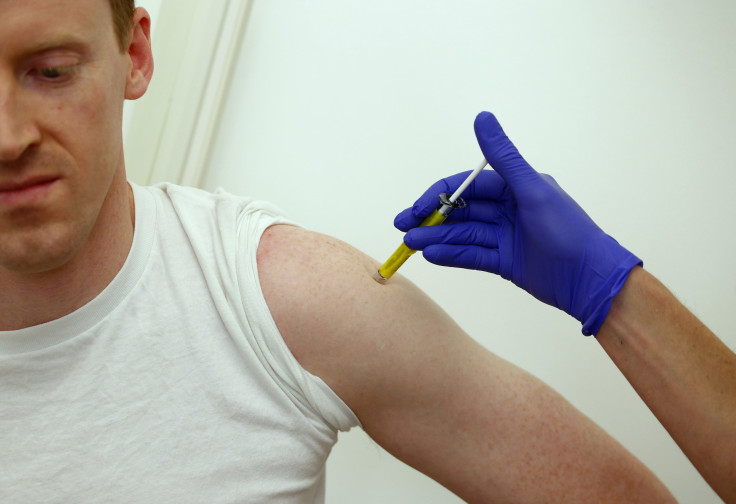Ebola Virus Vaccine Quite A Great Success In Human Clinical Trials

The vaccine for Ebola virus developed by GlaxoSmithKline and the National Institutes of Health is reported to be quite a success in early phase of human clinical trials. Ebola virus infection cause severe fatal illness in human and is highly contagious.
The route of transmission of infection is from one man to another, but animals are the primary source of infection in humans. The virus finds its way into man when there is a close contact with body fluids of infected living or dead animals such as monkeys, gorillas and fruit bats.
The vaccine developed by the researchers is based on a Chimpanzee cold virus named adenovirus 3 (ChAd3). The adenovirus 3 (ChAd3) is genetically engineered to produce a protein that is specific to the Zaire Ebola virus strain associated with the on-going outbreak in West Africa. This protein inside the human body triggers the immune system to produce antibiotics to fight the targeted Ebola virus strain.
Another vaccine targeting both the Zaire and Sudan strains is also reported to be under human clinical trial. Sixty healthy individuals from the United Kingdom are given three different dosage of the experimental medicine in the first phase of the trail. They were observed for four weeks, and at the end of the fourth week, antibodies for the virus were detected in the body in all the three dosage group, and only two subjects reportedly had fever.
Ebola virus infection symptoms start with fatigue, muscle pain, headache and sore throat and will be followed by vomiting, diarrhoea, rashes, symptoms of impaired kidney and liver function and haemorrhage in some cases resulting in death. Developing a vaccine in such a short period for a fatal disease of this kind is a great achievement and can sure save millions of lives.
To report problems or to leave feedback about this article, e-mail: saranya@ibtimes.com.au





















